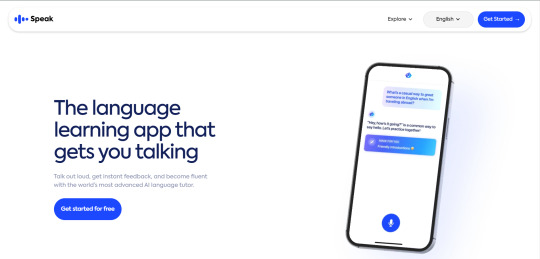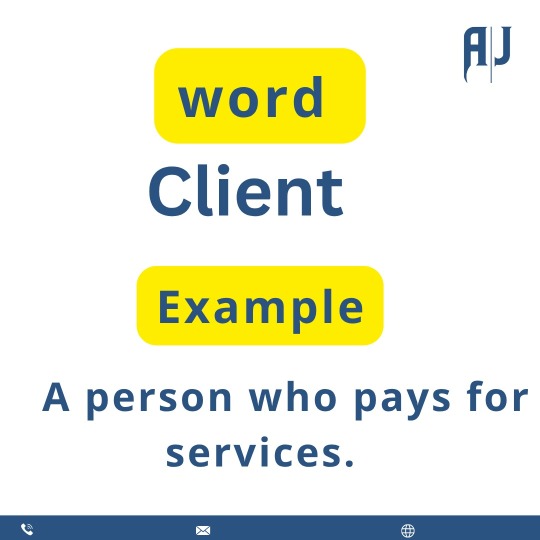#FluencyGoals
Explore tagged Tumblr posts
Text
Creating a language learning Routine:
Developing a routine is central to being able to find success in language learning. I will mention the daily and weekly routines, and focus moments that will provide you with some structure as you remain concentrated and consistent through life’s highs and lows. Obviously you can like adjust these recommendations to fit your life since we all live different lives.
Daily Routine - This is foundational, and the reason why the Duo owl gets sad. When you are in a non-native environment, the daily routine allows you to be able to continue to make progress and be reminded of the language. I think with this, though, it is most important to be low with your daily expectations. Just being able to show up and study a little bit is amazing.
Recommended Resource: An App or flashcards
Simple 5-10 minute revision
Focus on details and small concepts
Weekly Routine - Finding a time to revisit your progress and make actual progress in advancing the language. This could be in a grammatical topic or an intense review of what you already know. I think the expectation for this would be 45 minutes to one hour.
Recommended Resource: Language Book
15-minute review of Daily progress
Introduction of a concept in the language
Sporadic Concentration Moments: This is when you like to have a full afternoon or day to devote to the language. I would probably expect this to exist maybe once per month. I wouldn’t count on these moments, but like when they happen they’re awesome. You can build a specific moment of fluency where you can feel proud of what you have done in the language. I also think this is a time to revisit your progress on the weekly as well as daily routines to see if they’re still affective and what you might want to change up.
Recommended Resource: Language Book, App and personal resource, such as a novel specific to the language.
Large concepts
Lots of Vocabulary
Planning for major
You can find a list of recommended resources linked in their specific sections. I think that earch resource is a tool that you can use to build your fluency and competency in a language. I also am showing my progress in Turkish as well as how I became fluent in French, Italian and Spanish. So follow along for more and I hope that these posts can inspire you to communicate in another language!
#Sure#here's the list of tags without headings:#LanguageLearning#LearnLanguages#LanguageRoutine#StudyRoutine#LanguageAcquisition#Consistency#Motivation#SelfStudy#Productivity#DailyRoutine#WeeklyRoutine#FocusMoments#LanguageHabits#ShortStudy#DeepDive#Revision#Review#LanguageApps#Flashcards#LanguageBooks#Novels#Duolingo#LearningTurkish#FrenchFluency#ItalianFluency#SpanishFluency#FluencyGoals#Competency
2 notes
·
View notes
Text

Start your Japanese Language journey with India's Top Japanese Language Institute Nihonkai and improve your overall Japanese Language skills 🚀 ✅ JLPT N5–N2 Levels ✅ Improve Speaking, Listening, Reading & Writing ✅ Interactive Online & Offline Classes ✅ Free Demo Available
0 notes
Text
How Speak AI Helps Busy Learners Achieve Language Fluency

For busy learners, finding time to practice a new language can be a challenge. Speak AI offers a practical solution by providing an AI-powered language tutor that is always available, allowing users to practice whenever and wherever they want.
Problem Statement: Many language learners struggle to find the time and opportunity to practice speaking a new language. Traditional language classes may not fit into busy schedules, and practicing without a partner can be difficult.
Application: Speak AI's conversational AI tutor allows learners to practice speaking whenever they have a few minutes—whether they're at home, commuting, or taking a break at work. The tutor provides real-time feedback on pronunciation and grammar, ensuring that learners make consistent progress. The personalized curriculum also adapts to each user's learning pace and interests, keeping them engaged and motivated.
Outcome: By using Speak AI, busy learners can achieve language fluency without the need for scheduled classes or a physical tutor. The app's convenience and accessibility allow users to practice speaking regularly, which is key to building confidence and fluency.
Industry Examples:
Professionals: Use Speak AI to practice conversational English during commute times, improving workplace communication.
Students: Practice a foreign language outside of school to supplement learning and gain confidence in speaking.
Travelers: Prepare for trips by practicing basic phrases and conversations in the local language, making travel experiences more enjoyable.
Additional Scenarios: Speak AI can also help individuals who are preparing for language proficiency tests, providing real-time feedback on speaking exercises to ensure they are ready for their exams.
Enhance your language skills on your schedule with Speak AI. Start practicing today and achieve fluency faster, no matter how busy you are!
#SpeakAI#LanguageFluency#BusyLearners#AITutor#LearnOnTheGo#ConversationalPractice#RealTimeFeedback#LanguageLearning#PersonalizedLessons#FluencyGoals
0 notes
Text
🌐✨ Why Choose Lingualeo for Language Learning? Let's Dive In! 🚀📚
Unleash Your Language Potential with Lingualeo! 🌟
Are you on the hunt for a language learning platform that goes beyond the basics? Look no further! Here's why Lingualeo stands out in the language learning galaxy:
🎓 Adaptive Learning Magic: No one-size-fits-all here! Lingualeo adapts to your unique learning pace, ensuring lessons are challenging enough to stimulate growth yet tailored to keep you engaged.
🕹️ Game On, Fluency On: Turn learning into a game with Lingualeo's gamified experience. Earn points, set new records, and watch your language skills skyrocket in a fun and interactive way.
🤖 Smart Feedback at Your Fingertips: Receive instant feedback on your exercises, guiding you through the learning process with personalized insights. It's like having a language coach right in your pocket!
🗣️ Real Conversations, Real Confidence: Dive into real-life scenarios with conversational lessons that empower you to navigate everyday situations with ease. From ordering your favorite dish to making new friends, Lingualeo prepares you for it all.
🌍 Connect Globally, Learn Locally: Join a vibrant global community of language enthusiasts. Connect with learners worldwide, exchange cultural insights, and embark on a shared journey towards language mastery.
📱 Learn Anytime, Anywhere: Your language classroom is wherever you are! Lingualeo's mobile learning experience lets you take your lessons on the go. Commute, waiting in line, or cozy at home — your language journey fits into your lifestyle.
Ready to Elevate Your Language Game? 🚀🗺️
Whether you're starting from scratch or polishing your language prowess, Lingualeo is your launchpad to linguistic excellence. 🚀✨
Ready to embark on a language adventure like never before? Sign up now and let the linguistic magic begin! 🌐🔗 [Sign Up Today]
#Lingualeo#LanguageLearning#LearnWithLingualeo#LanguageJourney#SpeakFluently#LanguageAdventure#GameOnLanguage#GlobalLinguists#AdaptiveLearning#InteractiveLanguage#LanguageCommunity#LearnAnywhere#FluencyGoals#LingualeoMagic#RealConversations#LanguageMastery#MobileLearning#FunWithLanguages#LingualeoExperience#LanguageSuccess
0 notes
Text
📈 Level Up Your Office English! 💬✨
Tired of blank stares in meetings? Start using these *must-know* Business English terms:
💡 Deadline = The final date
💡 Proposal = A formal suggestion
💡 Negotiation = Let’s make a deal
💡 Revenue = Income for a business
💡 Client = Someone who pays for services
🧠 Speak with clarity. Sound more professional.
💼 Perfect for presentations, emails & interviews!
👇 Which word do you use the most at work?
Drop it in the comments! 💬
📌 Save this post to review before your next meeting.
👥 Tag a friend who’s working on their English fluency!
✨ Follow @anjs_englishhub @anjujindalcoach for easy grammar, fluent speaking tips, and fun English reels daily!
📚 #BusinessEnglish #EnglishForWork #FluentEnglish #EnglishTips #SpeakSmart #CareerReady #GrammarMadeEasy #LearnEnglishDaily #OfficeTalk #VocabularyBooster #FluencyGoals #ProfessionalEnglish #anjsenglishhub #ReelToLearn #Edureels #CorporateEnglish







0 notes
Video
youtube
Reading Fluency Breakthrough for Kids in 2024 #ReadingFluency, #ShortVowels, #PhonicsForKids, #LearnToRead, #EarlyReaders, #FluencyPractice, #PhonicsSkills, #ShortVowelWords, #KidsReading, #ReadingSkills, #PhonicsFun, #ReadingPractice, #VowelSounds, #LiteracyForKids, #ReadingFoundations, #FluencyGoals, #PhonicsGames, #ReadingGrowth, #VowelPractice, #ReadingIsFun, #FluencyMatters, #ReadingActivities, #ReadingSuccess, #ClassroomReading, #FluencyDevelopment, #PhonicsReading, #KidsLearnToRead, #FluencyBoost, #EarlyLiteracy, #BuildingFluency, #ReadingWithPhonics
0 notes
Text
The Road to Fluency: A Few Strategies and Techniques for Mastering English - Good Luck With Your Journey!

If you're a non-native speaker of English, you're probably familiar with the frustration of not feeling confident in your language skills. Whether you need help with grammar, pronunciation, or vocabulary, it's easy to feel overwhelmed and unsure how to improve. That's why we're here to answer five of the most common questions foreign learners of English always ask – and give you step-by-step advice that's practical, entertaining, and easy to follow.
Question 1: How can I improve my English pronunciation?
Good pronunciation is one of the key factors in speaking English confidently, and it's also one of the most complicated skills to master. But don't despair! You can use plenty of strategies to improve your accent and sound more like a native speaker.
First, listen to as much spoken English as possible – podcasts, TV shows, movies, and songs. Please pay attention to the sounds and intonation patterns, and try to imitate them as best you can. You can also use online resources like YouTube tutorials or language-learning apps to get feedback and practice pronunciation.
Another helpful tool is the International Phonetic Alphabet (IPA), which is a system of symbols that represent the sounds of English. By learning the IPA, you can better understand the differences between sounds in your native language and English and practice pronouncing them correctly.
Finally, don't be afraid to ask for help! Find a native speaker or English teacher who can give you feedback and corrections, and practice speaking as much as possible.
Question 2: How can I expand my English vocabulary beyond essential words and phrases?
Having a good vocabulary is essential for expressing yourself clearly and confidently in English. But how can you go beyond the basics and learn more advanced words and phrases?
One effective strategy is to read as much as possible in English – books, articles, and news stories. Then, when you come across a word you don't know, look it up in a dictionary or use an app like Vocabulary.com or Quizlet to practice memorizing new words.
You can also use flashcards or sticky notes to review new vocabulary daily and try to use the words in context – for example, by writing sentences or conversing with native speakers.
Finally, remember that context is vital. You can learn a lot about a word's meaning and usage by looking at the words that come before and after it and by understanding the cultural and social context in which it's used.
Question 3: What's the difference between American and British English, and which should I learn?
English is spoken in many different countries worldwide, and each variety has unique characteristics and quirks. Two of the most well-known types are American English and British English – but what are the differences, and which one should you learn?
The main differences between American and British English are pronunciation, vocabulary, and spelling. For example, American English tends to have a more "rhotic" accent, meaning that the "r" sound is pronounced at the end of words like "car" and "far". On the other hand, British English is more "non-rhotic", meaning that the "r" sound is not pronounced in those words.
There are also differences in vocabulary – for example, Americans might say "elevator" where the British say "lift" or "truck" where the British say "lorry". And spelling can also vary – Americans tend to use "color" where the British use "colour" or "center" where the British use "centre".
So which one should you learn? It depends on your personal goals and preferences. For example, learning American English might be more practical if you plan to study or work in the US. On the other hand, if you're interested in British culture or planning to travel to the UK, British English might be a better fit.
That being said, both varieties are mutually intelligible, meaning speakers of one type can understand the other. So don't worry too much about making the "wrong" choice – the most important thing is choosing a variety you enjoy and feels motivated to learn.
Question 4: How can I improve my writing skills in English?
Writing in English can be a daunting task, primarily if you need to get used to the grammar and syntax of the language. But with some practice and helpful tips, you can improve your writing skills and express yourself more effectively.
First, focus on building a solid foundation in grammar and syntax. This means learning the basic rules of sentence structure, verb tenses, and punctuation. You can use online resources like Grammarly or the Purdue OWL to improve your grammar skills.
Next, practice writing every day. You don't have to write a novel – even a short journal entry or email can help you improve your writing skills. Make sure to proofread your work carefully and look for areas where you can improve.
Another helpful strategy is to read as much as possible in English. This will expose you to different writing styles and help you better understand what good writing looks like.
Finally, feel free to ask for feedback. Find a native speaker or English teacher who can give you constructive criticism and help you improve your writing skills over time.
Question 5: How can I overcome my fear of speaking English in public?
Fear of speaking in public is common for many language learners, but it doesn't have to hold you back. With some practice and a few helpful strategies, you can overcome your anxiety and speak English confidently in front of others.
First, start small. Practice speaking English in low-pressure situations, like with a friend or family member or in a language exchange group. This will help you build your confidence and get used to speaking in English without feeling self-conscious.
Next, focus on your mindset. Instead of worrying about making mistakes or being judged, try to focus on the positive aspects of speaking English – like the opportunity to connect with others and learn new things.
Visualization techniques can also be helpful – try imagining yourself speaking confidently in front of others, and visualize yourself succeeding.
Finally, remember that practice makes perfect. The more you speak English in public, the more comfortable you'll become. Don't be afraid to make mistakes or ask for help – everyone has to start somewhere.
In conclusion, learning English can be a challenging but rewarding experience. By focusing on your strengths, practising regularly, and using the right tools and strategies, you can become a confident and fluent speaker of English in no time. So don't give up – keep learning, keep practising, and you'll get there!
#MasteringEnglish#SpeakConfidently#BreakingBarriers#EnglishLanguageLearning#BeyondGrammar#FluencyGoals#FromShyToBold#LanguageSuccess#UnlockYourPotential#RoadToFluency
0 notes
Text
fluency goals: being able to watch stand-up comedy in target language
#fluency#language#goals#fluencygoals#french#spanish#latin#russian#korean#mandarin#japanese#comedy#langblr#frenchblr#spanishblr#languages#target language#bilingual#polyglot
7 notes
·
View notes
Photo

2nd session with my French tutor and I even bought myself a Blake and Mortimer mystery to read. I'm promising myself that I will not give up!! #fluencygoals #french #francais #blakeetmortimer (at Caffè Fiorè - Queen Anne)
0 notes
Text

Start Your Japanese Language Journey Today! 🚀
Get expert guidance from experienced tutors who are ready to lead you to fluency! 🗣📚
✅ Offline & Online Classes Available ✅ Beginner to Advanced Levels (JLPT N5–N2) ✅ Interactive Learning & Personalized Support
Join Nihonkai Japanese Language Institute and take your first step toward mastering Japanese! Call or WhatsApp 099997 98094
0 notes